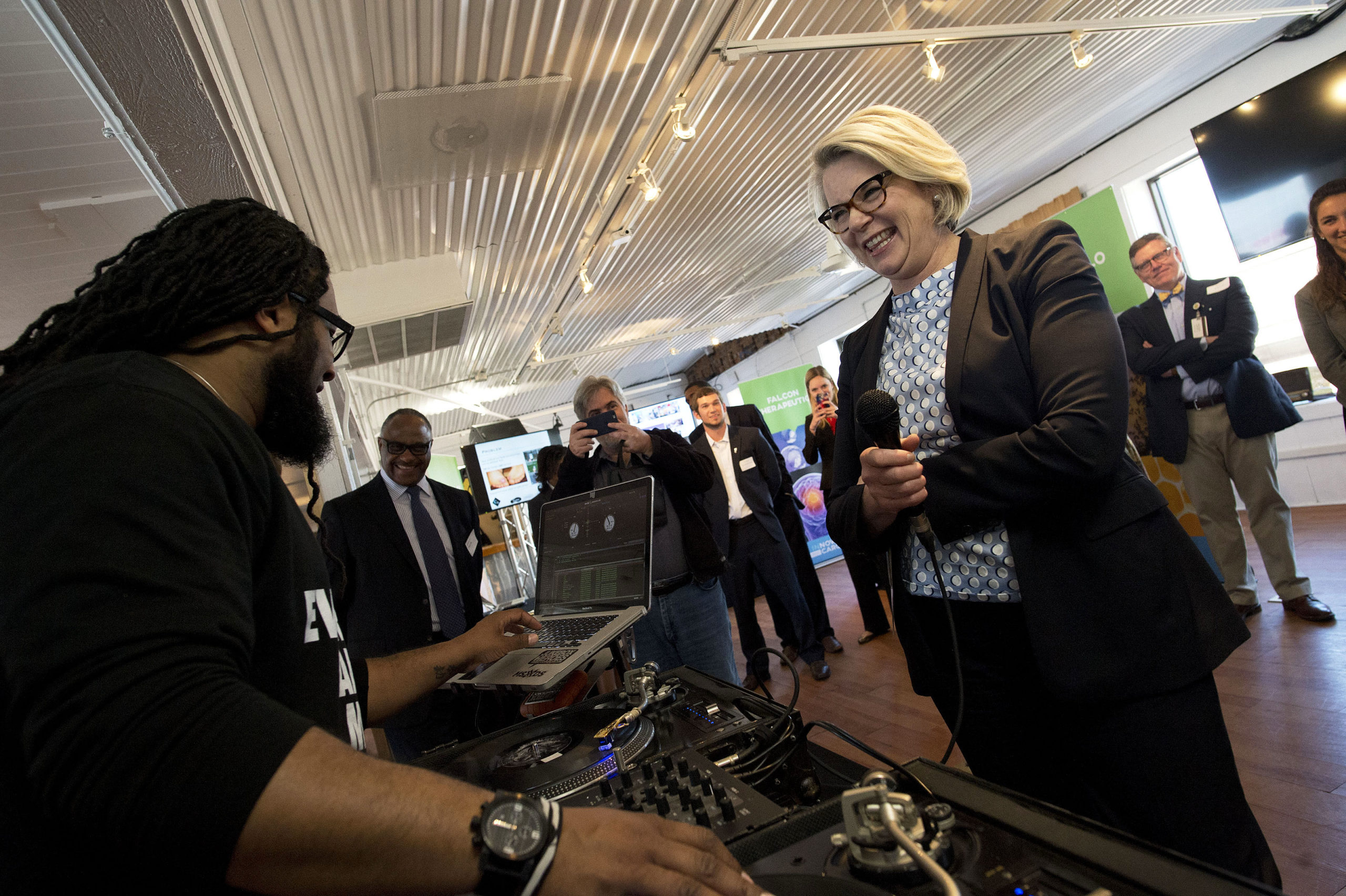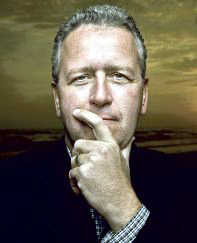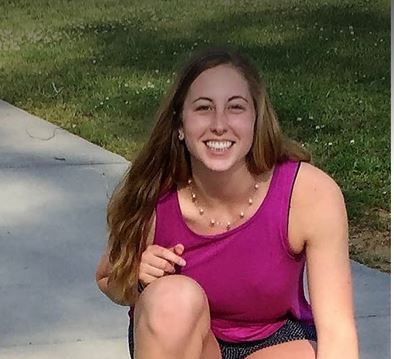Over the course of two jam-packed days, UNC System President Margaret Spellings got a chance to spend time with her neighbor up the hill.
And the neighbor got a chance to meet her – and show off a little bit.

“I’m here to visit and learn about the amazing things that are happening here — with scholarships, innovation, student learning, partnerships with the military, with the arts community, with the scientific community and on and on,” Spellings said while spending March 22 and 23 at the University of North Carolina at Chapel Hill, her latest stop on a state-wide listening tour during which she plans to see all 17 campuses within her first hundred days on the job. Spellings took office March 1. “It’s just a tremendous example of the mighty engine that the University of North Carolina system is.”
Wednesday’s stops spotlighted some of Carolina’s best-known research: the Biomedical Research Imaging Center, the Marsico Lung Institute, the College of Arts and Science’s the Matthew Gfeller Sport-Related Brain Injury Research Center and the Joint Applied Math and Marine Sciences Fluids Lab at Chapman Hall. Spellings gamely peeked into microscopes, operated manipulator arms used to work with radioactive research materials and slapped at a bouncing blue dot on a screen to test her hand-eye coordination.
‘Opportunity’
At Graham Memorial, she listened to first-generation students from Pembroke, Pittsboro and Puerto Rico share their stories about the unique paths they followed to Chapel Hill and Carolina’s commitment to make college accessible and affordable to all.
At the 1789 Venture Lab on Franklin Street, she heard student entrepreneurs explain ideas that ranged from The Helping Hand Project (that uses 3-D printing to produce prosthetic hands at a cost of $30 founded by biomedical engineering alumnus Jeff Powell) to Cool Soles, a heat-resistant shoe insert that can protect an athlete’s foot from the surface heat of synthetic turf.
Spellings also got the chance to “scratch” her first record at the lab, thanks to Mark Katz, director for the Institute for the Arts and Humanities, and musician and educator André Barden, also known as the DJ A-Minor. Katz and Barden had partnered in a hip-hop diplomacy program called the Next Level.
Katz handed Spellings the microphone, with the instruction to speak a word or phrase that she could “scratch” into music.
Spellings paused and said: “Opportunity.”

Before long, the room filled with a throbbing hip-hop beat swirling around a word that captured, perhaps better than any other, exactly what Spellings said she wants for every student who comes to any and all of the 17 campuses within the UNC system.
And it is also what she hopes students, faculty and staff will be willing to give her.
Asked what she would like to say to student protesters who yelled chants against her during her visit, Spellings said, “The first thing I would say to them is give me a chance,” Spellings said. “This is the start of my fourth week on the job and I’m getting about the state, looking at every campus and hearing what people are proud of and what they think our challenges are.
“I’m all ears. I want to hear obviously from everyone with a different point of view. We’ll attend to their concerns and issues the best we can.”
At a table that stretched the length of Gerrard Hall, Spellings spent more than an hour Tuesday listening to students and responding to their questions, followed by another hour-long session with faculty and staff.
Student Body President Houston Summers and other students asked Spellings about her commitment to protect and promote diversity at Carolina in order to “keep this place a truly public university.”
The pursuit of that ideal of inclusiveness has been started, student Jaelyn Coates added, but the work is not complete. Coates, an African-American student majoring in political science and African, African American and diaspora studies, is the chair of the Carolina Union Board of Directors.
“This country was not created for people of color,” Coates said, “and this school wasn’t created for people of color. How do we address that honestly?”
By not being afraid to talk about it honestly, Spellings answered, and to work toward creating a campus culture that is warm, welcoming and accommodating to all.
The UNC system does a good job of educating elites, she added, but it needs to do a better job of educating students of color and students who are the first in their family to attend college.
Speaking for the faculty, Faculty Chair Bruce Cairns told Spellings, “We like to see ourselves as elite, but not elitist.”
What makes the University truly great, Employee Forum Chair Charles Streeter told Spellings, are the people who come to work here every day and pour their hearts into fulfilling its deeply rooted mission of teaching, research and public service.
The takeaway from such comments, Spellings said, is that faculty and staff “think they are stewards of something that will have implications far into the future.”
“There is a real sense of purpose about being part of an institution that has been so mighty and so long-lasting,” she said.
Story by Gary Moss and Susan Hudson, University Gazette.
Photos by Jon Gardiner, Office of Communications and Public Affairs
Video by Rob Holliday, Office of Communications and Public Affairs



